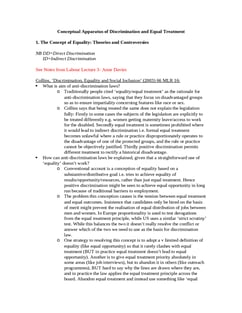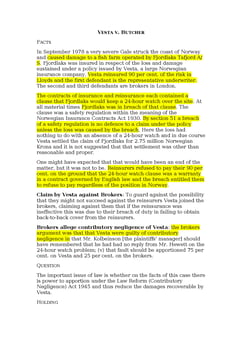Geys v Société Générale [2012] UKSC 63
Judgement for the case Geys v Société Générale
Table Of Contents
KEY POINTS
A repudiatory breach by one party does not necessarily result in the automatic termination of the parties' main rights and obligations under the contract. Instead, it provides the other party with the option of either terminating the contract or considering it as still valid.
Although the Bank had the option to terminate the employment contract with immediate effect by paying the claimant in lieu of notice, the contract was not considered terminated until the Bank notified the claimant by its letter that it had exercised its right to terminate the contract.
FACTS
Claimant Raphael Geys was employed as Managing Director of European Fixed Income Sales by Société Générale, London Branch (the “Bank”). The employment contract contained a provision allowing either party to terminate the employment by giving 3 months' notice.
The Staff Handbook incorporated further terms into the contract, including a payment in lieu of notice (PILON) clause. The Bank reserved the right to terminate Mr Geys' employment "at any time with immediate effect by making a payment to you in lieu of notice."
A few years later, Mr Geys was summarily dismissed in breach of the terms of the contract. The Bank paid Mr Geys the correct sums due to him under the PILON clause on December 18, 2007. He saw the sums only on January 8, 2008 at which point his solicitors had already written to the Bank, stating that Mr Geys had decided to affirm his contract and requesting further details on the termination and associated payments.
In a response via letter on January 6, 2008, the Bank notified Mr Geys that it exercised its contractual termination rights.
Thus, Claimant filed a lawsuit claiming compensation for breach of contract and the termination payment as outlined in the company handbook. The claimant put forward the argument that the date of termination should be considered as the date when he received a letter sent to him on 4th January, in order to calculate the amount of termination payment owed to him.
On the other hand, the defendant argued that the claimant had been dismissed on either 29th November or, at the latest, on 18th December, and therefore the amount of compensation owed to him should be calculated accordingly.
COMMENTARY
The Court has emphasized that when either an employer or employee wishes to terminate a contract, the notice given must be clear and unambiguous to be effective.
Failure to provide clear and specific notice may result in disputes between the parties as to whether the employment relationship has been terminated, or what the terms of the termination may be.
For Further Study on Geys v Société Générale

Labour Law notes fully updated for recent exams at Oxford and Cambridge...
Need instant answers? Our AI exam tutor is here to help.
Ask questions 🙋 Get answers 📔 It's simple 👁️👄👁️
Our AI is educated by the highest scoring students across all subjects and schools. Join hundreds of your peers today.
Get StartedSimilar Cases
Related Product Samples
These product samples contain the same concepts we cover in this case.
| Commercial Remedies BCL | Soc Generale V. Geys Notes (6 pages) |
| Labour Law | Wrongful Dismissal Notes (39 pages) |
| Labour Law | Wrongful Dismissal Notes (26 pages) |


 Since 2010, Oxbridge Notes has been a trusted education marketplace, supplying high-quality materials from top achievers at universities like Oxford, Cambridge, LSE, Harvard, and Yale.
Since 2010, Oxbridge Notes has been a trusted education marketplace, supplying high-quality materials from top achievers at universities like Oxford, Cambridge, LSE, Harvard, and Yale.